Under a dimly-lit porch, a handful of traumatised and newly homeless survivors sit on metal benches, near the rubble of the collapsed Morandi bridge in Genoa.
"I don't want to talk about it," says one man with heavy rings around his eyes.
He is not alone. News cameras and microphones are following the every move of those milling around a municipal sports centre where psychologists and local officials are trying to deal with their sudden change of fortune.
After Tuesday's tragedy, 100 people spent the first night at the sports centre, most of them evacuated from homes made unsafe by the collapse or drivers caught up as 35 cars and several trucks plunged 45 metres onto railway tracks below along with huge chunks of concrete.
Very few of them want to recount what they saw and endured as the bridge collapse left dozens dead.
Majid Alaoui, a 35-year-old dock worker in the northern Italy port city, manages a few words.
"My four-year-old daughter and my wife are inside. My daughter isn't doing well, she can't stop crying," he says.
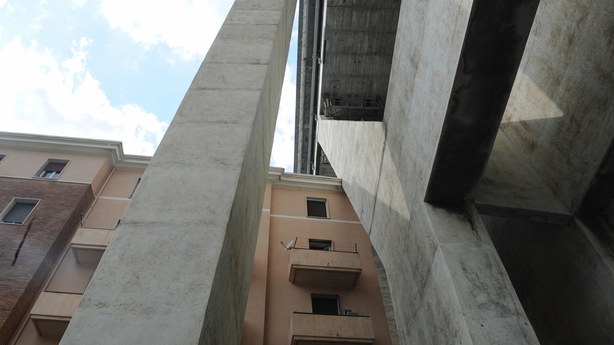
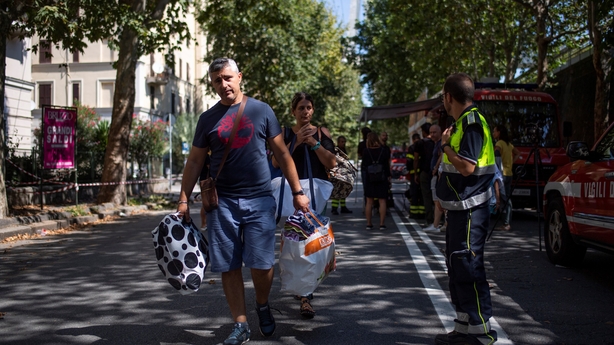
Journalists are not allowed inside the sports centre where these evacuees have been sent.
"One person was in their car when the bridge collapsed," said Maria Tini, a local official of the populist Five Star Movement, which is part of Italy's coalition government.
"She managed to get out of her car and fled on foot. She saw the bridge crumble right in front of her," Ms Tini added.
More than 600 local residents were evacuated, some being sent to hotel rooms, others housed with friends and relatives or given vacant apartments.
"This morning, many people turned up on their own initiative, offering to put up people who have been evacuated," said Michele Colnaghi, another local Five Star councillor.
One hotel in the area has offered rooms free of charge, said deputy mayor Paola Bordilli.
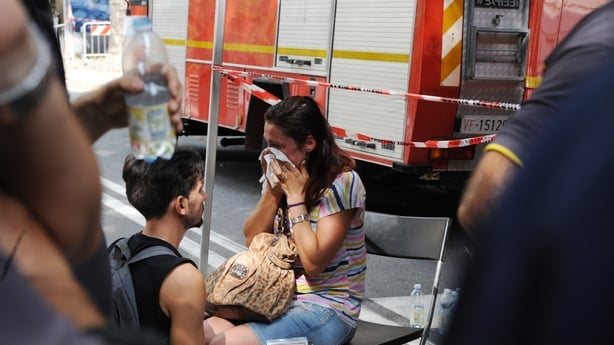
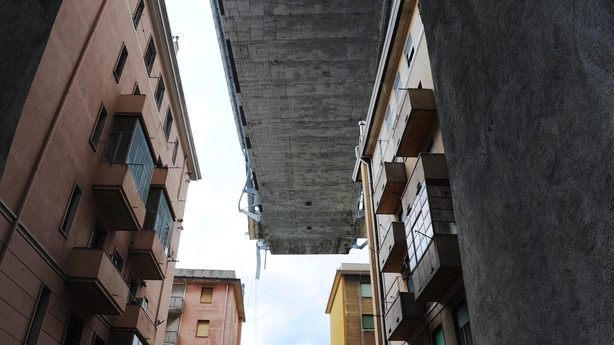
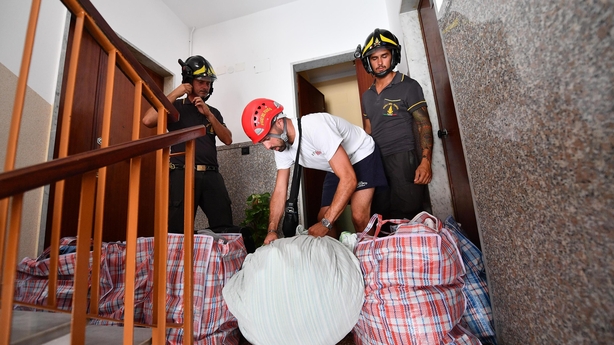
Yesterday, two days after the bridge collapse, men and women were still turning up to register for emergency accommodation.
The Alaoui family were living in an apartment under the massive Morandi bridge, which buckled without warning.
"We were sent to a hotel and told that we could return home in a week, then someone told us that we'd have to stay there until November," said Majid Alaoui.
He is now living in a single room with his wife and daughter with only a few belongings and without the means to cook a meal.
Read More:
Search for survivors as anger mounts over collapse
Genoa bridge collapse labelled 'a tragedy waiting to happen'
State of emergency declared after Italy bridge collapse
On Wednesday, local and national officials made the situation quite clear: the portions of the bridge still standing would be demolished and that means the buildings below will have to go too.
Italy's Interior Minister Matteo Salvini has committed to rehouse everyone by the end of the year, but that seems a distant horizon right now.
"I have to go back to work on Tuesday but I won't be doing so. I can't leave my wife and daughter in this state," Mr Alaoui said.
"But there are people worse off than us," a man in his 30s from Morocco chimed in.
Among their new neighbours in the hotel are the family of a man who fell from the collapsing bridge and died.
"They have come to Genoa for the funeral on Saturday," he adds.
Names released of some victims of the Morandi bridge collapse
A family setting off on holiday, young French nationals who came over for a music festival, a couple returning from their California honeymoon; two days after the horrific collapse of a bridge in Genoa, officials and the media have begun naming the victims whose lives were tragically cut short.
The provisional toll remains at 38 dead, with some of the victims identifiable only through a piece of jewellery.
Genoa officials released a list of 21 names, with dates and places of birth, of Italian victims whose families have been informed following Tuesday's accident.
On the list was a family from the Liguria region of northwest Italy, of which Genoa is the capital; Roberto Robbiano, 44, his wife Ersilia, 41, and their son Samuele, aged eight.
Their friends and relatives said they were on their way to catch a ferry for a holiday on the island of Sardinia.
In another car was a family from Turin. Andrea Vittone, 49, and Claudia Possetti, 48 were on their way home from their honeymoon in California with her two children Manuele, 16, and Camila, 12. None survived.
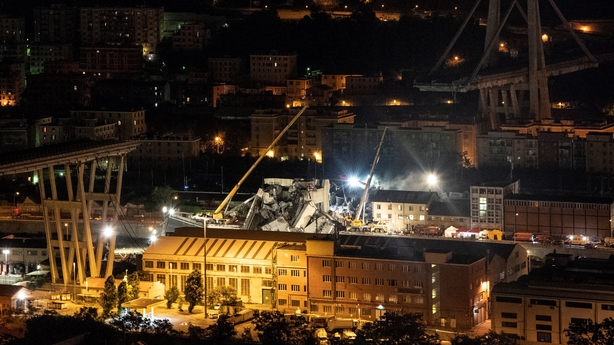
Andrea Cerulli, 48, was a father and played football at the Genoa club Portuali.
"Our friend, our colleague victim of the tragedy on Morandi bridge, farewell Andre..." the club wrote on its Facebook page.
Giorgio, 57, was a former moto champion who became an entrepreneur, Alberto, 32, was an anaesthetist working in Pisa with his 29-year-old girlfriend Marta.
Neapolitan Gennaro Sarnataro, 43, transported fruit and vegetables and was on his way back from a trip to France.
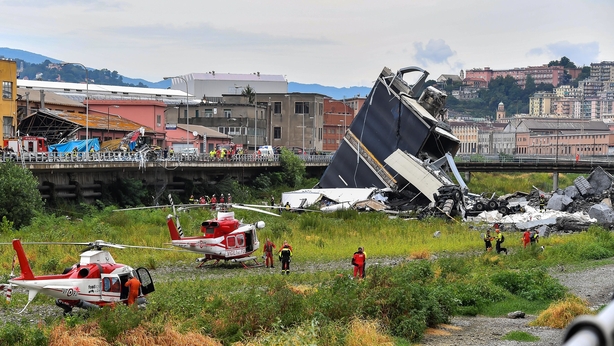
Vincenzo Licata, 58, ran a transport company in Sicily and leaves behind a wife and two children.
Chile's diplomatic service confirmed the deaths of three if its citizens who lived in Italy.
France mourned the death of four nationals from the southwest, all in their 20s, who had travelled to Italy to attend a techno music festival.

